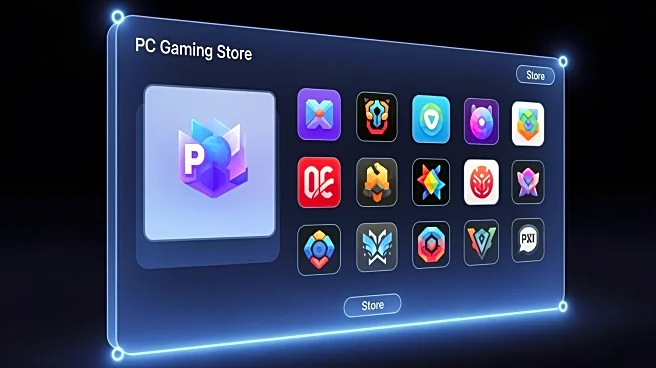What's Happening?
A recent survey conducted by Atomik Research, titled 'The State of PC Game Distribution,' has highlighted the significant influence of Valve's Steam platform in the PC gaming industry. The survey, which gathered responses from 306 industry executives
in the United States and the United Kingdom, found that 72% of respondents believe Steam holds a monopoly over the PC games market. Despite this perception, Steam remains a crucial revenue source, with over 75% of sales for these companies coming from the platform. The survey also revealed that while 48% of executives distribute games through the Epic Game Store and Xbox PC Games store, only a small fraction use platforms like GOG and Itch.io. Notably, 80% of respondents plan to explore alternative sales channels alongside Steam in the next five years.
Why It's Important?
The findings underscore Steam's pivotal role in the PC gaming industry, which has implications for developers and consumers alike. Steam's dominance suggests limited competition, potentially affecting pricing, innovation, and the diversity of available games. For developers, reliance on a single platform could mean vulnerability to changes in Steam's policies or fees. However, the platform's extensive user base offers significant exposure and sales potential, especially for smaller developers. The survey's indication that many companies are considering alternative platforms suggests a potential shift in the industry, which could lead to more competitive practices and diversified offerings for consumers.
What's Next?
As the industry acknowledges Steam's dominance, developers and publishers may increasingly seek to diversify their distribution strategies. The survey indicates a growing interest in alternative platforms, which could lead to increased competition and innovation in the PC gaming market. Companies might explore partnerships with emerging platforms or invest in their own distribution channels to reduce dependency on Steam. This shift could also prompt Steam to adapt its business model to maintain its market position, potentially benefiting developers and consumers through improved services and pricing.
Beyond the Headlines
The perception of Steam as a monopoly raises questions about market fairness and the potential need for regulatory oversight. As digital distribution becomes more central to the gaming industry, discussions around antitrust and fair competition may gain traction. Additionally, the reliance on digital platforms over physical media reflects broader trends in consumer behavior and technological advancement, highlighting the industry's shift towards digital-first strategies.













